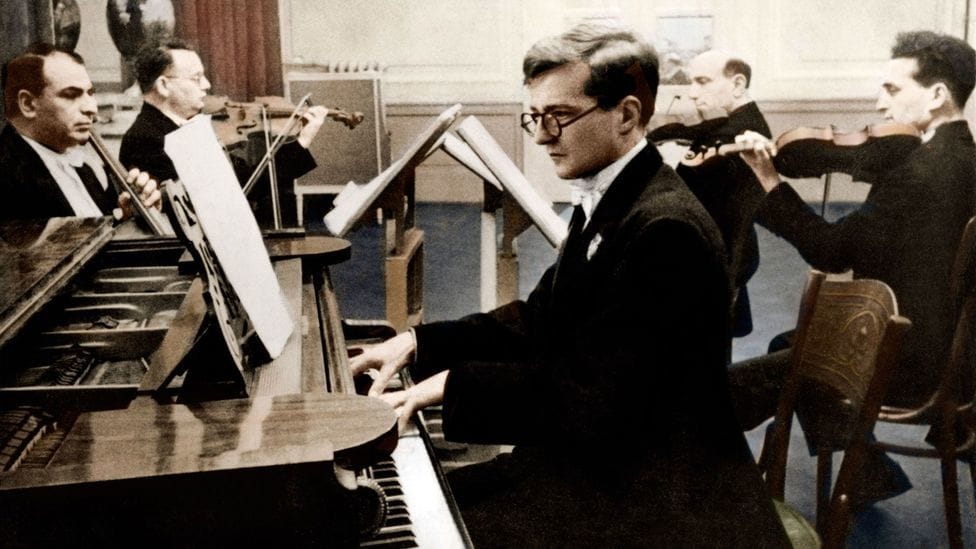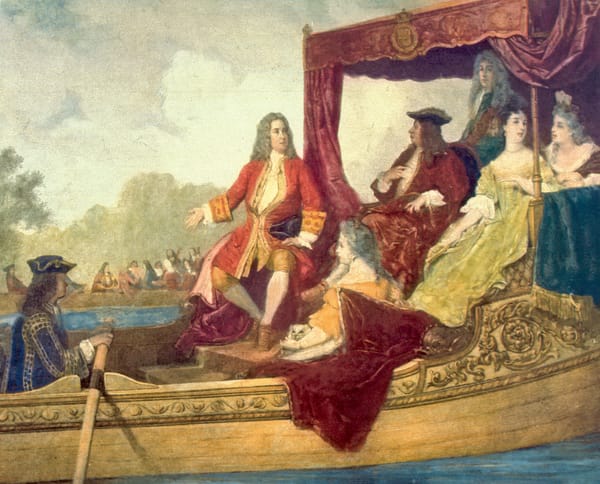Shostakovich’s Impromptu for Viola and Piano: Paul Neubauer and Wu Han

In 2017, a previously unknown work by Dmitri Shostakovich was discovered in Moscow’s Central Archives among the documents of Vadim Borisovsky (the longtime violist of the Beethoven Quartet). It was a brief, unassuming piece entitled, Impromptu for Viola and Piano, Op. 33. The autograph on the title page was dated, May 2, 1931, and was dedicated to “Alexander Mikhailovich…in memory of our meeting.” It is assumed that this was actually Alexander Ryvkin, the violist of the Glazanov Quartet. (Ryvkin and the Quartet are pictured above in 1940, with Shostakovich at the piano).
About the same time the Impromptu was composed, the 24-year-old Shostakovich wrote the title music for the Soviet dramatic film, Counterplan. Interestingly, this music was given the same opus number of 33. The Impromptu’s haunting and lamenting melody unfolds over a hypnotic piano accompaniment. Its progress is redirected by a particularly wrenching harmonic surprise. Shostakovich’s only other known solo work for the instrument is the Viola Sonata, which was written years later in the final days of the composer’s life.
The violist Paul Neubauer and pianist Wu Han gave the American premiere at Lincoln Center in 2018. This performance was recorded a few months later at Music at Menlo:
The Song of the Counterplan
Shostakovich was both high artist, writing for posterity, and utilitarian craftsman. As a skilled craftsman, he provided music for some of Stalin’s propaganda films, one of which was the 1932 drama, Counterplan, the plot of which centered around an effort to apprehend counter-revolutionary saboteurs in a Soviet factory. The Song of the Counterplan, also designated Op. 33, echoes the distinctly Russian vocabularies of composers such as Tchaikovsky and Rimsky-Korsakov:





